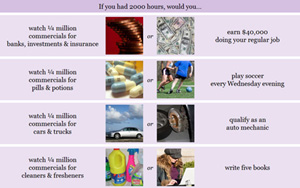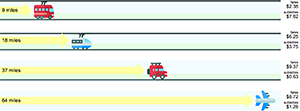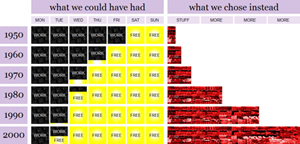National Stereotypes in a word

Notes
Americans are ignorant, Germans are unfunny and Iranians are beautiful… or so they say
This map shows what we think of the peoples of the world. I came up with these stereotypes by typing into the Google search box of my Firefox browser the words "Americans are…", "Germans are…", "Iranians are…", etc. The autocomplete helpfully suggested a sequel for each of the phrases, based on Google's findings crawling through billions of web pages.
So when I say that this map shows what we think, I really mean that it shows what those of us who publish to the web in the English language think. As one such publisher, I can affirm that we're a pretty weird bunch, and that you shouldn't take what we say too seriously.
And before all you cocky Argentinians, mendacious Nigerians and boring New Zealanders contact me to complain about the egregious characterizations represented on this map, just remember, they're not mine, they're the web's.
Subscribe now and I’ll let you know whenever I create a new visualization
It’ll only be every couple of months or so, I won’t let anyone else have your email address, and you can unsubscribe at any time
Thanks for subscribing!
Check your inbox for an email to confirm your subscription
Oh no, something went wrong, and I was unable to subscribe you!
Please refresh your browser and try again
Sources
I derived the one-word characterization of each of the nations according to the following rules:
1. Where there was a suitable one-word term for the citizens of a particular nation, I used it, e.g. Canadians for Canada, Americans for the United States, Mexicans for Mexico
2. Where the common one-word term for the citizens of a particular nation was not gender-neutral, I used the appropriate adjective followed by people, e.g. English people for England (since Englishmen is gender-specific), French people for France (since Frenchmen is gender-specific)
3. I then typed the term into the Google search box of my Firefox browser, followed by the word are, e.g. Australians are, and selected the top one-word sequel
4. I excluded any racial references, e.g. Italians are black, Iranians are Arabs
5. I excluded any suggestion that people of one nationality are really of another nationality, e.g. English people are German, Turks are mongols
6. I excluded the following terms as being too widely applied: annoying, arrogant, cheap, racist, smart, stupid, ugly, weird
7. Where a two-word sequel could be condensed into a single word, I did so, e.g. Germans are not funny into Germans are unfunny
8. Where a term turned out to be the top one-word sequel for more than one nationality, I used my discretion to apply it only to the most appropriate, e.g. French people are rude (even though Australians are rude too)
Date
First published 28 August 2011












Comments
Click here to leave a comment
Thanks for your comment!
I’ll check it and put it live as soon as I can
Oh no, something went wrong, and I was unable to post your comment!
Please refresh your browser and try again
Oliver ⋅ 25 February 2016
Zat's not funny!
Greetings from Germany.
Kase ⋅ 20 September 2021
Im not thaaat ignorant